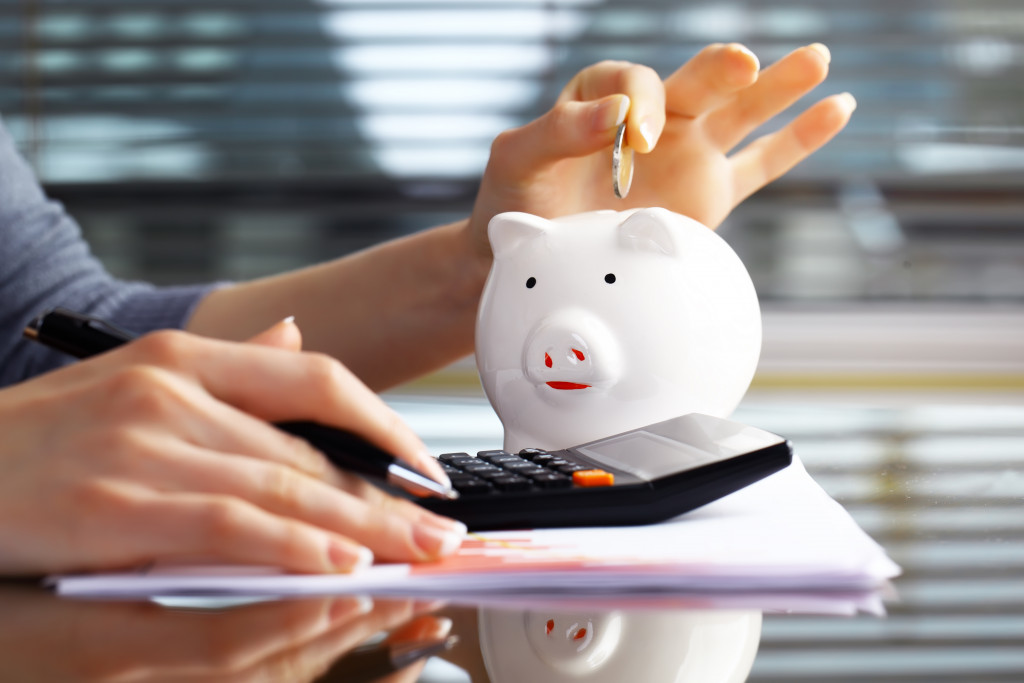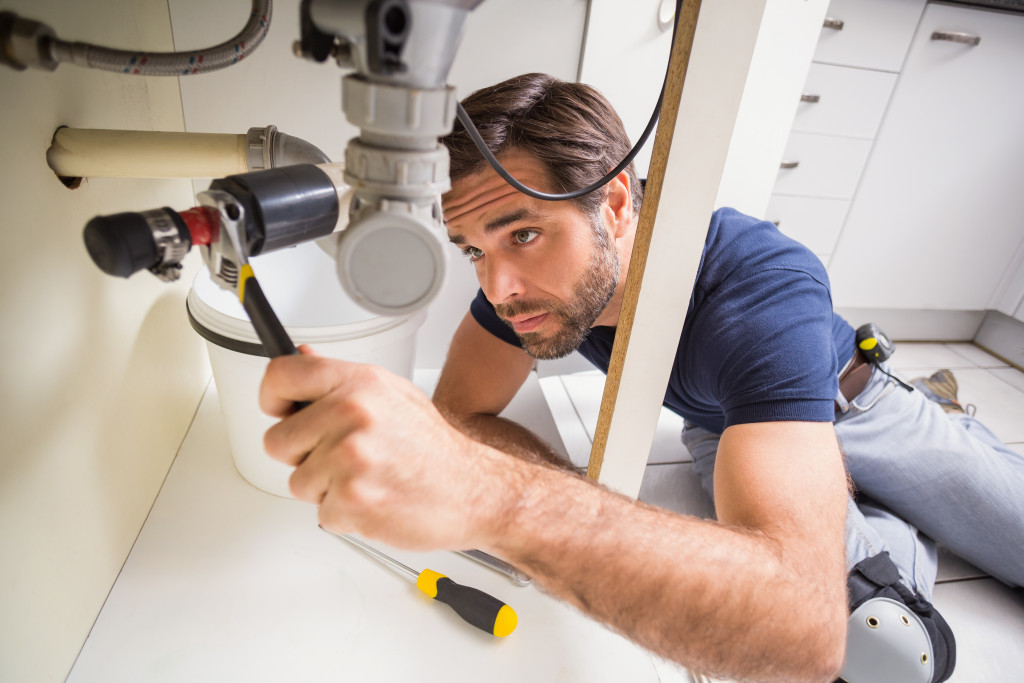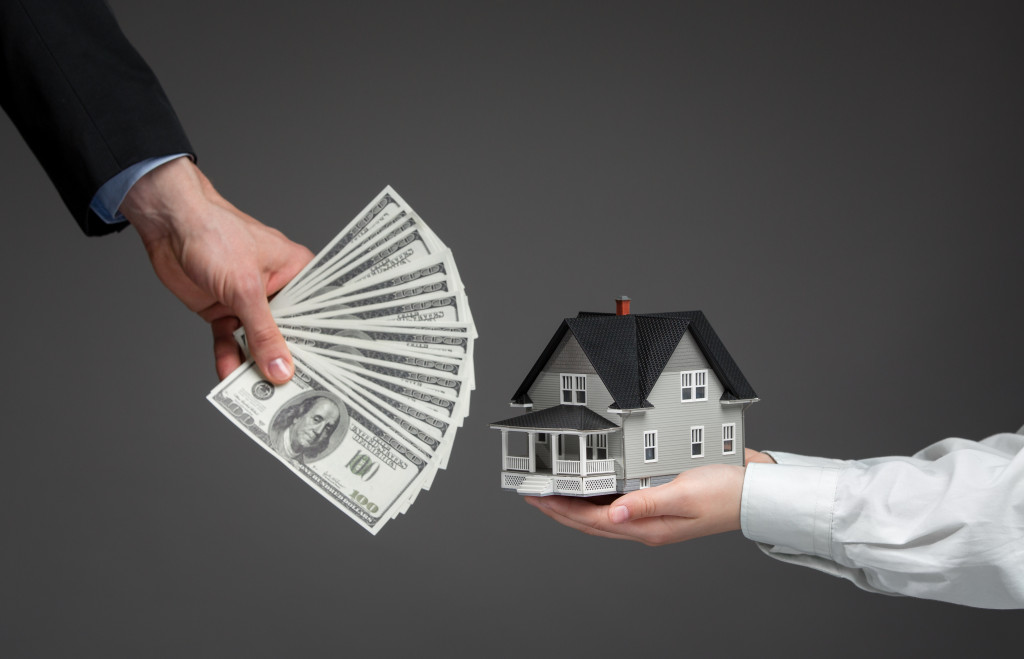- Establishing an emergency fund is a financial buffer for unexpected homeownership expenses and promotes financial stability.
- Keeping a list of emergency contacts for home repair/maintenance services can prevent further damage and save costs.
- Secure home insurance for financial protection against potential losses or damages to your property due to unforeseen circumstances.
- Regularly reviewing and updating your finances and insurance policy ensures your coverage reflects your current situation.
Preparing your finances ahead of time is crucial when considering homeownership. It’s not just about the mortgage payments; several other expenses are to consider, including property taxes, home insurance, maintenance, and repairs. According to data from the US Census Bureau, the median monthly housing costs for mortgaged homeowners was $1,558 in 2019, a significant portion of most households’ income. Furthermore, a report by Home Advisor found that homeowners spent an average of $3,192 on home maintenance, highlighting the importance of being financially prepared. This preparation helps maintain your home in the long run and ensures financial stability and peace of mind.
Building your finances, however, will require a clear understanding of your current financial situation, including your credit score, income, and savings. Here are some essential steps you can take to prepare for home-related expenses:
Establish Emergency Funds

Establishing an emergency fund is an essential step in financial planning for homeownership. It acts as a financial buffer against unexpected costs, such as sudden repairs or changes in property taxes. Without this safety net, these unplanned expenses could lead to financial stress or even debt. The Federal Reserve reports that nearly 40% of American adults would struggle to cover a $400 emergency, underlining the importance of building a robust emergency fund for home-related expenses.
Building an emergency fund is a gradual process. Start by setting a monthly savings goal, a fixed amount, or a percentage of your income. Aiming for an emergency fund that covers about three to six months’ worth of living expenses is advisable. To help meet your goal, consider automating your savings so that a portion of your income goes directly into your emergency fund each month. It might seem daunting initially, but even small, regular contributions can accumulate over time into a significant safety net for home-related expenses.
Keep Track of Emergency Contact Expenses
Homeowners must have a list of emergency contacts for home repair and maintenance. These contacts can provide immediate assistance during unexpected situations, preventing further damage to your property and potentially saving you substantial costs in the long run. They offer expertise and professional service, ensuring emergencies are handled promptly and correctly.
Plumbing Services

A burst pipe or a leak can cause severe water damage to your property if not addressed promptly, making it essential to have a reliable plumber as an emergency contact. Plumbing services also offer pipe caliper services necessary for accurate pipe replacement and efficient repairs.
Electrical Services
Electrical issues not only disrupt your daily life but can also pose a risk of fire. A qualified electrician should be on your emergency contact list to ensure any electrical problems are addressed safely and efficiently.
Home Security Services
In case of a break-in or security system failure, having a reliable home security service provider on speed dial can provide immediate assistance, ensuring your property and your family’s safety.
HVAC Services
A sudden heating or air conditioning failure, especially during extreme weather conditions, can be uncomfortable and pose health risks. A reputable HVAC service provider on your emergency list ensures you are never left in the lurch, regardless of the weather conditions.
Secure Home Insurance
Securing home insurance is another integral aspect of financial preparation for homeownership. It provides financial protection against potential losses or damages to your property due to unforeseen circumstances, such as natural disasters, burglaries, or accidents. Without an appropriate insurance policy, repairing or replacing damage could be immense, leading to significant financial strain. In 2018, the Insurance Information Institute reported that one in 20 insured homes has a yearly claim, emphasizing the importance of home insurance in safeguarding your significant investment.
When securing home insurance, consider these tips:
- Understand Your Coverage: Insurance policies can come with various coverage types. Understanding what your policy covers is crucial to ensure it meets your needs and protects your home and personal property adequately.
- Shop Around: Don’t settle for the first quote you receive. Compare rates from different insurers to find the best deal. Remember, cheaper isn’t always better – ensure the policy provides thorough coverage.
- Consider a Higher Deductible: A higher deductible can significantly lower your insurance premiums. However, be sure you can afford the deductible in case of a claim.
- Take Advantage of Discounts: Many insurance companies offer discounts for safety features such as alarm systems, smoke detectors, or bundling home and auto insurance. Make sure to ask your provider about possible discounts.
- Regularly Review and Update Your Policy: Your home insurance needs may change over time, particularly if you renovate your home or purchase expensive items. Periodically reviewing and updating your policy ensures that your coverage reflects your current situation.
Final Thoughts
Owning a home is a significant financial responsibility, and preparing for the associated expenses is crucial. By establishing emergency funds, keeping track of emergency contacts, securing home insurance, and regularly reviewing your finances, you can ensure homeownership remains a rewarding experience. Always plan and seek professional advice to make informed decisions about your finances and homeownership. With the proper preparation, you can enjoy the comforts and benefits of owning a home without financial stress or unexpected expenses.

